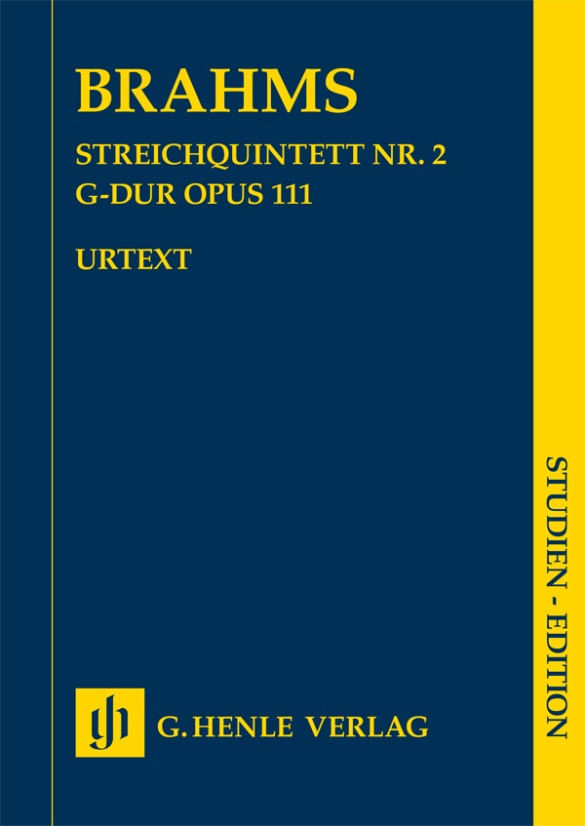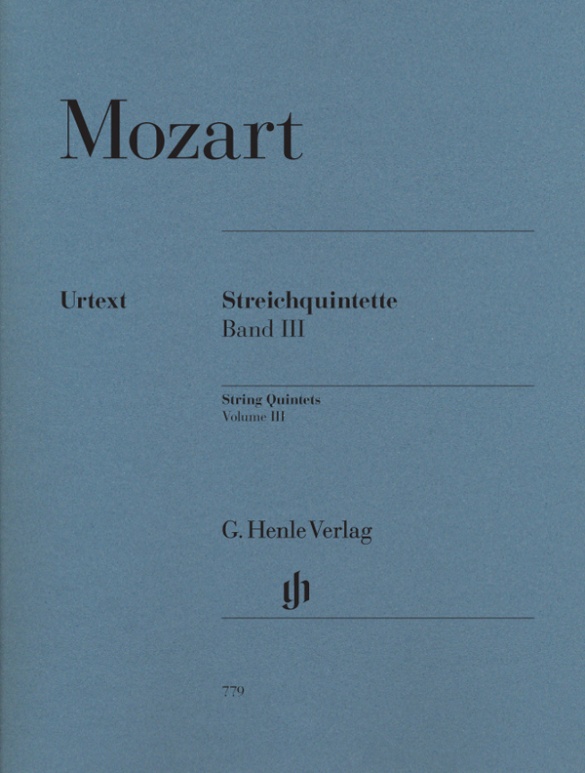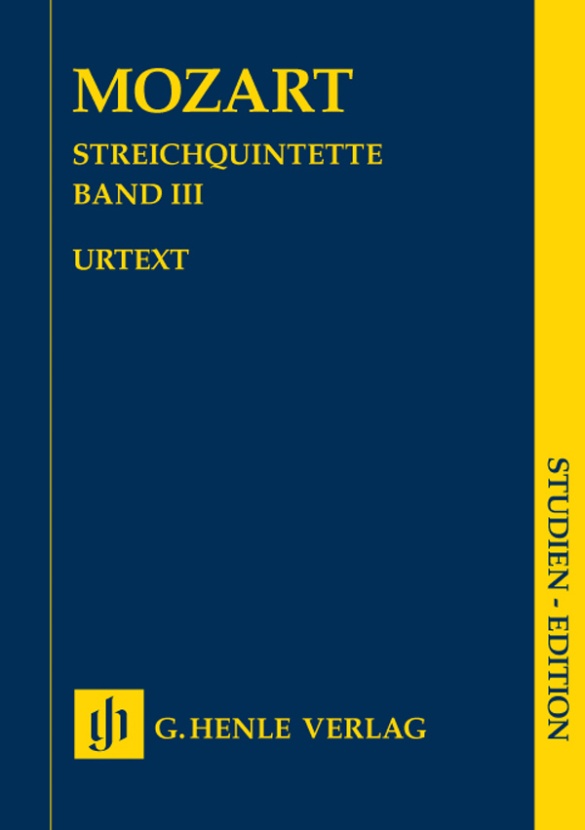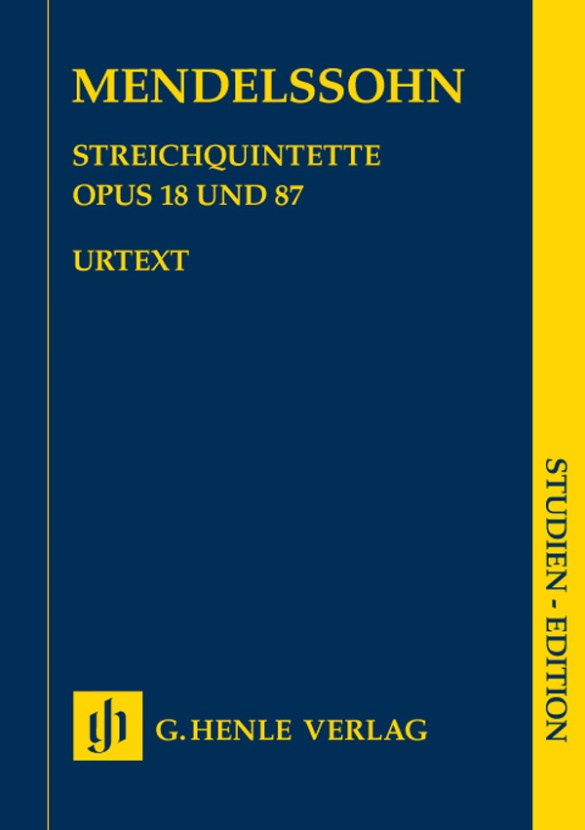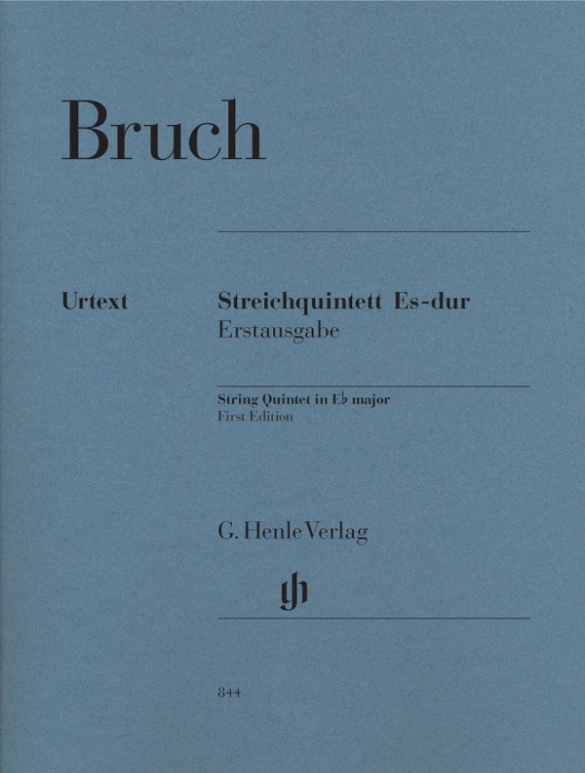

Max Bruch
String Quintet E flat major
On 18 May 2006 a manuscript was auctioned at Sotheby’s that made chamber musicians prick up their ears. Shortly before his death, Max Bruch composed three works for strings which he was no longer able to have published. Following his death, the two quintets and the octet were believed to have gone missing. Whilst the other two works have since re-appeared, the Quintet in E flat major could not be found. It was only later that the well-preserved copy surfaced in Sotheby’s catalogue.
Following a scholarly evaluation, we are now proud to present a first edition of this charming late Romantic work to the music world.
Content/Details
About the Composer
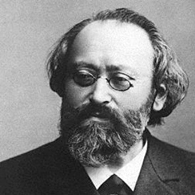
Max Bruch
A German composer of the Romantic period. Stylistically, his works outline a counter-aesthetic to the New German School. His violin concerti are particularly significant, but he also wrote numerous choral works, cantatas, oratorios, songs, stage works and orchestral pieces.
| 1838 | Born in Cologne on January 6. He received his first musical training from his mother, a singer. |
| from 1849 | Music instruction from Heinrich Carl Breidenstein. Writes many compositions even though still a child. |
| 1852 | Scholarship recipient of Frankfurt’s Mozart Foundation. |
| 1853–57 | Studies composition with Ferdinand Hiller in Cologne. |
| 1858 | Premiere in Cologne of his opera “Scherz, List und Rache” (“Jest, Cunning, and Revenge”), op. 1. |
| from 1858 | In Leipzig he associates himself with those around Mendelssohn. |
| 1862 | Moves to Mannheim. |
| 1863 | Premiere in Mannheim of his opera “Die Loreley,” op. 16. |
| 1865–67 | Music director in Koblenz. Composes his Violin Concerto no. 1 in G minor, op. 26. |
| 1867–70 | Court musical director in Sondershausen. Composes his Symphony no. 1 in E-flat major, op. 28, dedicated to Johannes Brahms, and Symphony no. 2 in F minor, op. 36 (both in 1870). |
| 1870–78 | Freelance composer in Berlin and Bonn. Composes the oratorio Odysseus, op. 41 (1871/72). |
| 1879/80 | Composition of the Fantasy in E-flat major, op. 46 (Scottish Fantasy) for violin and orchestra. |
| 1880–83 | Director of the Philharmonic Society in Liverpool. |
| from 1883 | Travels to the United States. Director of the Breslauer Orchesterverein (Wrocław Orchestral Society). |
| from 1891 | Director of the composition masterclass at the Berlin Academy of the Arts. Honorary doctorate from Cambridge University (1893), and membership of the Académie des Beaux Arts (1898). |
| 1907 | Vice-President of the Academy of the Arts, Berlin. |
| 1920 | Dies in Berlin on October 2. |
About the Authors
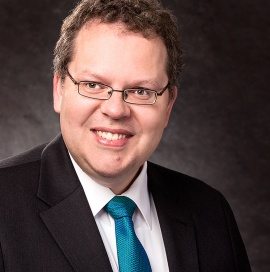
Michael Kube (Editor)
Dr. Michael Kube, born in 1968 in Kiel, studied musicology (with Friedhelm Krummacher and Heinrich W. Schwab), the history of art and ethnology at the Christian-Albrechts-Universität zu Kiel. Since 1998 he has been a research associate at the New Schubert Edition (Tübingen) and since autumn 2002 also a member of the editorial board.
Kube is on the panels of different juries and music prizes, and is also a member of the Committee for work evaluation (Werkprüfungsausschuss) of VG Music Edition. His research interests include music for keyboard instruments around 1700, 19th century chamber music, early 20th century music history, as well as Scandinavian music history.
Product Safety Informations (GPSR)

G. Henle Verlag
Here you can find the information about the manufacturer of the product.G. Henle Verlag e.K.
Forstenrieder Allee 122
81476 München
Germany
info@henle.de
www.henle.com
Bruch, der exzellent für Streicher und ihre Möglichkeiten komponiert hat, setzt auch hier ganz auf die klangliche Opulenz des mit einer Bratsche verstärkten Streichquartetts. Wie in Mendelssohns Kammermusik dominiert die erste Violine, und doch ist das Werk für alle Beteiligten überaus dankbar gesetzt. Es bleibt zu wünschen, dass dieses Quintett und die anderen gross angelegten Kammermusikwerke Bruchs nach Jahrzehnten ihren Platz auf der Bühne zurückerobern.
Schweizer Musikzeitung, 2009Der achtzigjährige Bruch erweist sich als vitaler und einfallsreicher Komponist und Meister des fünfstimmigen Satzes, der bei ihm immer durchsichtig und klangvoll klingt. Verhältnismäßig leicht zu spielen, findet sich das Es-Dur-Quintett bereits jetzt im Repertoire vieler Kammermusikformationen und dürfte sich rasch einen Platz in den Herzen des Publikums und begeisterter Amateure erobern.
Ensemble, 2009Après une évaluation de l’œuvre faite selon les règles de la critique des sources, Henle se réjouit de pouvoir remettre au monde de la musique, en première édition, cette œuvre plaisante de la fin du romantisme musical.
Crescendo, 2009Finalmente, 17 anni dopo il fortunoso ritrovamento, il Quintetto in mi bemolle è restituito alla viva pratica musicale grazie all’edizione curata da Michael Kube per Henle, che ne mette in vendita partitura tascabile e parti staccate, come sempre realizzate in una veste grafica di austera perfezione.
Giornale della Musica, 2009recommendations
autogenerated_cross_selling
Further editions of this title
Further editions of this title


